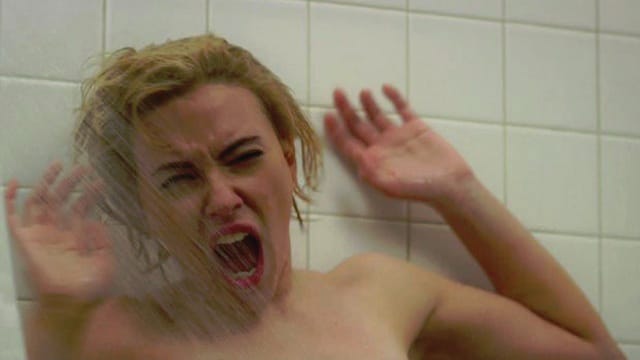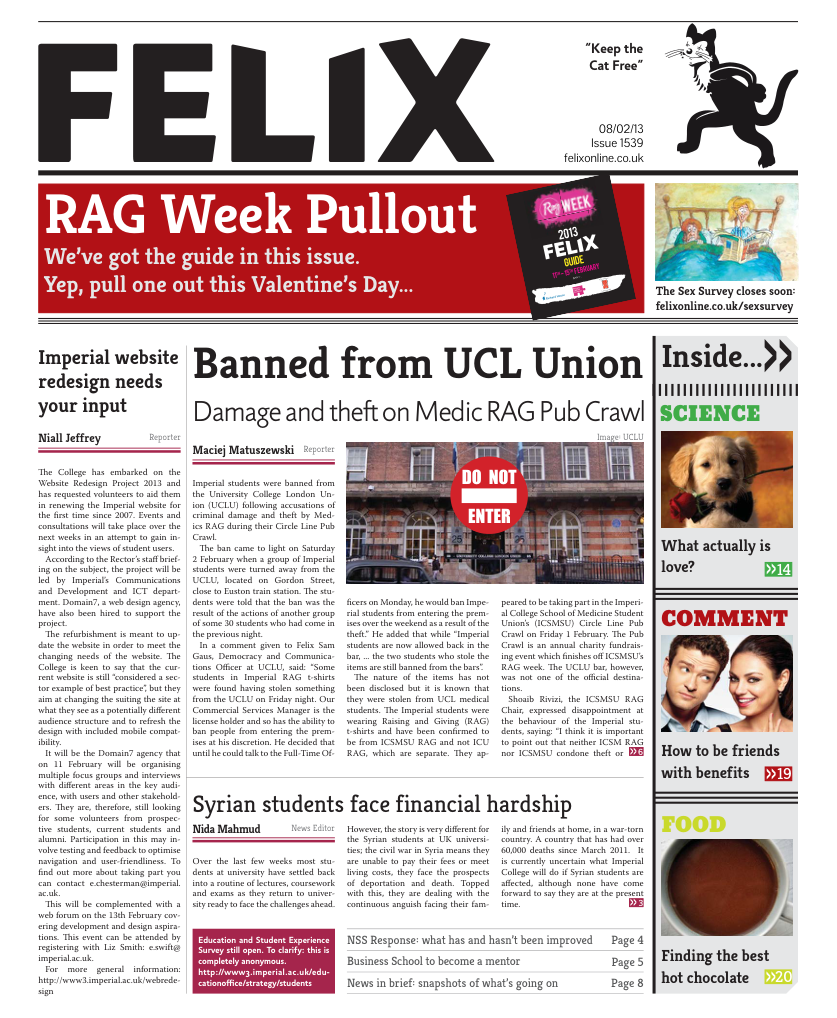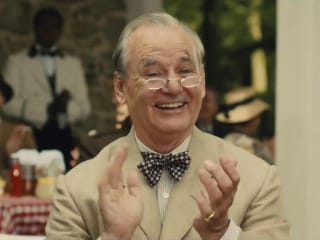“The great and glorious genius, Alfred Hitchcock”
John Park likes but is not overawed by this tale
Once upon a time there was a man named Alfred Hitchcock (Hopkins) and he was as huge hit in Hollywood. Many of his pictures were critically acclaimed and considerable financial success stories, with audiences worldwide entertained with his suspenseful movies. The year is 1959, and the English director is enjoying the immense hit of his latest, North by Northwest. Aged 60, is it time for him to retire whilst he’s ahead? A reporter asks. Never; as he is never finished exploring his artistic daring. With the bar set this high now, anticipation builds on what will become his next project. After a long period of searching for something he feels is exactly right, he settles on the story based on serial killer Ed Gein (Michael Wincott), who used to skin his victims. And of course, a film titled Psycho has boardroom executives and censors troubled with its potentially bold, offensive content.
“Hitch” (his preferred nickname: “Just Hitch, hold the cock”) has a lot of persuading and convincing to do since everyone is appalled by the idea of having a vicious mother-loving serial killer roam about on the screen murdering someone taking a shower. Will there be nudity? Hitch insists there won’t be. Since the actress will be wearing a shower cap. The Motion Picture Production Code is neither impressed nor amused. His wife Alma Reville (Mirren) isn’t keen on the idea at first, but eventually warms to the concept, fulfilling the role of an ever-dutiful wife who supports her husband no matter what. It’s even her idea to have the leading lady killed off in the first thirty minutes.
The next hurdle comes in trying to secure funding for the film. Paramount, his usual collaborating company, respectfully declines to offer up the budget. Hitch, owning quite the fortune himself thanks to his previous successes, decides to self-finance the production: that’s how much he believes in the screenplay. Alma is obviously weary of Hitch’s big spend, but again, supports him by having to cut back on their usual expenses. She must also tread carefully when a close friend of hers, Whitfield Cook (Huston), insists on Alma having a read of his new script.
Now the casting: Grace Kelly, now Her Serene Highness the Princess of Monaco, is completely off limits, much to Hitch’s dismay. So he goes on to Janet Leigh (Johansson), Vera Miles (Biel), and as for the titular Psycho role, the nervous, shy and timid Anthony Perkins (D’Arcy) seems to fit the part, an excellent find Alma manages to pick from a rather large pile of resumes.
So the events leading up to the actual production seem interesting enough. We wonder just how much of a tough time Hitch will face, whilst directing his passion project. But when it comes to actually showing the audiences the process of filming Psycho, we are treated to very little insight, if at all. Hitchcock is more interested in what effects the filming had on the relationship between the director and his wife. Aside from a brief scene that shows how the infamous “shower scene” came into existence, we very rarely visit the set, let alone spend any time with the actors in front of Hitch’s cameras. Johansson, Biel and D’Arcy all resemble their real-life counterparts and have a good crack at acting the actors’ parts, but their performances are so brief that very little ends up of any use.

The film also wants to explore the psychology behind Hitch’s attachment to the original material of the production. We are intermittently shown Ed Gein at various stages of his life. We see Hitch visualising the serial killer’s behaviour. Developing this to strangers territories, we also see Hitch conversing with his “inspiration.” These scenes hardly ever work, since it is never really depicted just what lesson the director took away from studying his character in so much depth. So he makes a film that causes impact and its fair share of scandals. But how he goes about bringing everything together is never clearly addressed and therefore it all ends up looking a bit tame for its subject matter.
But yes, we do see the eccentric and quite possibly disturbingly perverted side of Hitch. He likes to stare at people through his window. He likes to stare at Vera Miles changing through a peep-hole. He cannot take his eyes of Janet Leigh. And he’s hardly ever apologetic for his actions, even when directly in front of his wife. This does naturally cause some tension in his marriage. It’s not the first time something like this has happened. The famous Hitchcock blondes are the subject of his obsessive desire it seems, and Alma’s put up with them for years. With the added pressure of some tough hoops to jump through, it’s only a matter of time until the two of them face off head-to-head. And in these iconic roles, the two veterans are simply outstanding. Hopkins is full of odd qualities and is utterly brilliant in delivering his slow, deadpan, shock humour. With his awkward posture and gait, he truly transforms into the master of suspense and there is no denying that Hopkins’ portrayal is a fun, endlessly watchable one. Equally brilliant is Mirren, who is full of commanding energy, love and wisdom as the behind-the-scenes guide of her husband. (“I celebrate with you when the reviews are good, I cry for you when they are bad”) Her frustrations are entirely understandable, and she very rarely masks her feelings. She too has the tendency to speak her mind and Mirren, who has never had a problem with the dramatics, puts everything she has into the more wordy scenes. “I put up with those people who look through me as if I were invisible because all they can see is the great and glorious genius, Alfred Hitchcock” says Alma, with bitter disdain when Hitch dares to accuse her of not supporting his work enough.
Once the film is eventually finished with the collaborative effort between the spouses, the result is an unexpected one, and despite the hurdles, Hitchcock has once again directed a classic that shocks us even to this day. His legacy lives on, and for good reason. And here is a film that tells us he had undying encouragement and help from perhaps the most important woman in his life. “I will never find a Hitchcock blonde as beautiful as you,” says he, “Oh, Hitch. I’ve waited thirty years to hear you say that.” “That, my dear, is why they call me the Master of Suspense.” How sweet.








